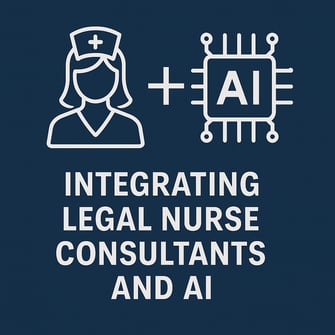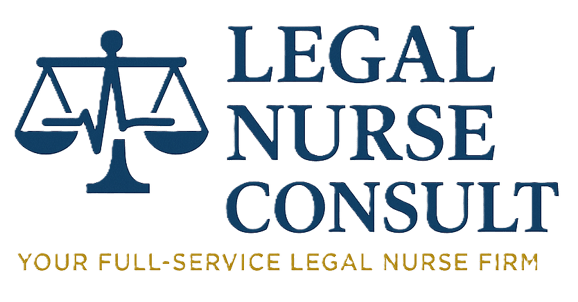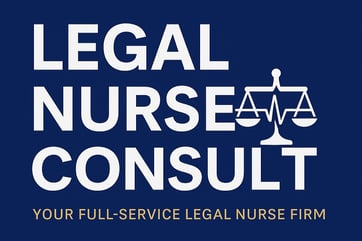Your Full-Service Legal Nurse Firm: Medical Case Reviews & Consulting for Attorneys and Families
Legal Nurse Consultants and the Rise of AI in the Legal Industry: A Critical Partnership in Medical-Legal Cases
As law firms integrate AI to streamline litigation, the role of Legal Nurse Consultants becomes more critical than ever. Discover how LNCs provide the clinical context, causation analysis, and medical insight that technology alone can't deliver.
Brian Silverstein, RN | LegalNurseConsult.com
5/30/20252 min read


The legal industry is rapidly evolving with the integration of artificial intelligence (AI), transforming how attorneys approach research, document review, and even case strategy. In many practice areas, especially corporate law and intellectual property, AI is becoming indispensable. But in the realm of medically complex litigation—cases involving personal injury, medical malpractice, wrongful death, and catastrophic harm—the role of human clinical expertise remains irreplaceable.
Legal Nurse Consultants (LNCs) are uniquely positioned to fill a widening gap in this evolving system: interpreting medical information with the depth, context, and clinical judgment that no current AI model can replicate.
⚙️ What AI Can—and Can’t—Do in Medical-Legal Cases
AI tools are making it possible to analyze thousands of pages of documents in minutes, identify patterns in large datasets, and even predict litigation outcomes. These capabilities offer clear advantages in managing caseloads and accelerating pre-trial workflows.
However, when it comes to cases rooted in human physiology, standard of care deviations, or subtle changes in patient status, AI falls short. It lacks:
Contextual understanding of clinical deterioration
The ability to interpret nursing judgment or clinical decision-making
Nuanced evaluation of causation, especially in multi-system or delayed-onset conditions
The insight to identify what isn’t in the chart but should be
In other words, AI can process data—but it doesn’t understand patient care.
🧑⚕️ The Enduring Relevance of Legal Nurse Consultants
Legal Nurse Consultants bring a distinct and necessary perspective to the legal team: they operate at the intersection of clinical care and legal reasoning. Their value is not only in analyzing what is present in the medical records, but in identifying omissions, timing issues, deviations from clinical standards, and the often-overlooked “soft data” that points to negligence or harm.
As AI continues to streamline and automate routine legal tasks, LNCs are becoming even more vital in areas such as:
Breach and causation analysis: Understanding the link between medical action (or inaction) and patient outcome.
Standard of care assessment: Determining whether nursing and medical practices met acceptable clinical benchmarks.
Record synthesis: Organizing large volumes of medical data into meaningful, actionable narratives for legal teams.
Timeline construction: Aligning symptoms, interventions, and critical events to assess liability or defense.
🧩 Working Alongside AI: A Complementary Model
Rather than viewing AI as a threat, many legal professionals are moving toward a hybrid approach: using AI to handle the repetitive and voluminous, while relying on expert consultants to bring meaning and depth to the results.
In this model, the legal nurse serves not only as an expert but as a filter—refining, validating, and sometimes correcting the output of AI tools through the lens of real-world medical knowledge. This partnership leads to stronger case strategies and fewer missed details in high-stakes litigation.
🧭 Looking Forward
The future of law is undeniably digital—but medicine remains human. As courts, clients, and attorneys navigate an increasingly tech-driven environment, the need for skilled professionals who can bridge the gap between algorithms and anatomy is only growing.
Legal Nurse Consultants represent a vital counterbalance to legal AI: not slowing it down, but grounding it in clinical reality.
CONTACT US
© 2025. All rights reserved.
Disclaimers:
This service does not offer legal advice or representation. We do not file cases or communicate with attorneys on your behalf unless separately arranged. Reports are for personal use or for your chosen legal team to review.
Questions? Email: support@legalnurseconsult.com


